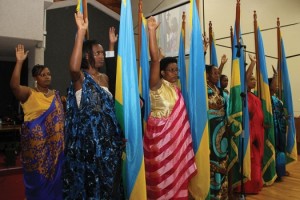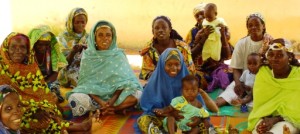Celebrate Mother’s Day by Empowering All Women
May 10th, 2015 | By admin | Category: Reproductive Rights/Women's RightsBy Suzanne York, www.howmany.org.
Mother’s Day is a good time to reflect on the status of women. Though we honor mothers, women face many hurdles and much inequality today that make one question how much we as a global society respect women, whether they are moms or not.
Empowering women and improving the state of women’s rights are also solutions to so many problems today. From climate change to violent conflict to poverty, if women were empowered to address their needs and the needs of their families, communities and environment, we could have a very different world.
The advocacy organization UN Women has an excellent factsheet that reflects the urgency to recognize and prioritize the rights of woman all over the world. Phumzile Mlambo-Ngcuka, executive director of UN Women, has said, “Gender equality and the empowerment of women and girls are fundamental to a more just, peaceful and secure future for all of us.”
Here are some facts and figures compiled by UN Women on the challenges – and opportunities – that should guide decision-making and inspire greater investment in women:
- Every day 800 women continue to die trying to give life. Millions of other women are at risk of unintended pregnancy or complications from unsafe abortions or childbirth due to lack of access to maternal and reproductive health care services and adequate family planning.
- A child born to a mother who can read is 50 per cent more likely to survive. For every year of education beyond grade four that a woman receives, the risk of her child dying of preventable causes is reduced by 10 per cent. Yet women constitute two-thirds of the world’s illiterate.
- Countries with greater gender equality have economies that grow faster, as shown through a comparative analysis of 134 countries. When women are empowered and have an income, they invest back into their families and communities, driving down hunger, poverty and malnutrition, and improving health, education and well-being.
- About 925 million people go hungry every day. The Food & Agriculture Organization estimates that if women had the same access as men to productive assets, increased agricultural output in 34 developing countries could reduce the number of hungry people by up to 150 million.
- Women remain disproportionately affected by poverty, discrimination and exploitation, with more than half (50.4%) of working women in vulnerable employment. If women’s paid employment rates were raised to the same level as men’s, gross domestic product would be between 9 and 16 per cent higher in major developed economies while in developing economies, per capita income could rise by 14 per cent by 2020.
- One in three women and girls are impacted by physical or sexual violence in their lifetimes. A gross human rights violation, this pandemic fractures families and communities and hampers development, also costing billions of dollars annually in health care costs and lost productivity.
- More than 125 countries have specific laws that penalize domestic violence; yet 603 million women live in countries where domestic violence is not considered a crime.

Swearing-in of Members of Parliament and other government officials in Rwanda. [photo credit: www.un.org]
If we want to change things for the better, women need access to education, jobs and healthcare. And the world needs more female political leaders. Women’s representation in governments makes a big difference. In India in areas with female-led local councils the number of drinking water projects was 62 percent higher than in those with male-led councils, while in Norway, evidence shows a direct relationship between the number of women in municipal councils and childcare coverage they enacted. In Rwanda, 64 percent of parliamentarians are women – the highest proportion of any parliament in the world.
Here in the U.S., women currently hold 104, or 19.4 percent, of the 535 seats in the 114th U.S. Congress.
It is rather shocking that in 2015, women are still fighting for greater rights. We have a lot of work to do to empower 50 percent of the world’s population. It starts with respecting women, mothers, and girls. In the words of Susan B. Anthony, ” The day must be approaching when the whole world will recognize woman as the equal of man…” She expressed those words in 1901.
Suzanne York is a senior writer with the Institute for Population Studies.

